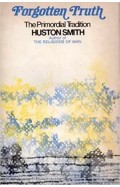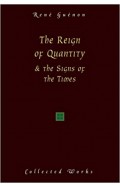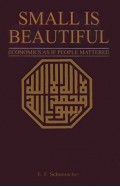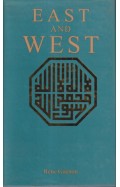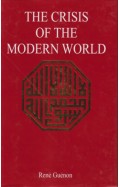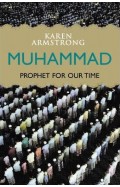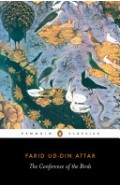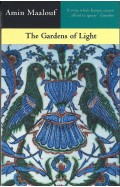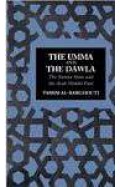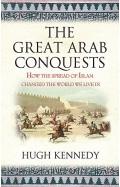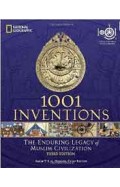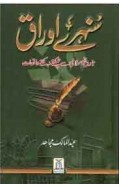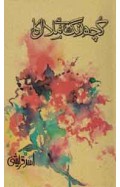MUSLIM SELF-STATEMENT IN INDIA AND PAKISTAN (1857-1968)
By: Aziz Ahmad
-
Rs 760.00
- Rs 950.00
- 20%
You save Rs 190.00.
Due to constant currency fluctuation, prices are subject to change with or without notice.
MUSLIM SELF-STATEMENT IN INDIA AND PAKISTAN (1857-1968) Aziz Ahmad and G. E. Von Grunebaum Islamic conquest of India by the Arabs, the Turks and the Turko-Afghans, between the 8th and the 13th century was followed by the introduction and propagation of the mainstream of Islamic thought— theological, Sufi, and political, in India. The theological thought was mainly traditional until the eighteenth century when for the first time it faced a severe challenge, the loss of the political power and economic decline. The measure of originality in the theological and political thought of Muslim India is traceable mainly to the eighteenth century, when the problem of &Cadence had to be faced. Creative fundamentalism was followed by modernism with the establishment of the British power and its consolidation after 1858. This anthology indudes selections from significant literature and documents that hold a mirror to modem Islamic self-consciousness, self-statement, and self-definition in the Indo-Paldstan subcontinent The mirror reflects representative selections from the writings and ideas of Sayyid Ahmad Khan, Chiragh Ali, Muhammad Qasim Nanotawi, Mirza Ghulam Ahmad, Mirza Bashir al-Din Mahmud, Siddiq Hasan Khan, Shibli Nu`mani, Khwaja Altaf Husayn Hali, Amir Ali, Mawlana Muhammad Ali, Abul Kalam Azad, Muhammad Iqbal, Muhammad All Jinnah, Abu 1-Ma Mauducli, Ghulam Ahmad Parwez, Khalifa Abd al-Hakim, Selections from the Munir Report, A. A. A. Fyzee, Extracts from the Constitutions of Pakistan (1956 and 1962) and Islamic Clauses from the Constitution of Pakistan (First Amendment), Act of 1963.
MUSLIM SELF-STATEMENT IN INDIA AND PAKISTAN (1857-1968) Aziz Ahmad and G. E. Von Grunebaum Islamic conquest of India by the Arabs, the Turks and the Turko-Afghans, between the 8th and the 13th century was followed by the introduction and propagation of the mainstream of Islamic thought— theological, Sufi, and political, in India. The theological thought was mainly traditional until the eighteenth century when for the first time it faced a severe challenge, the loss of the political power and economic decline. The measure of originality in the theological and political thought of Muslim India is traceable mainly to the eighteenth century, when the problem of &Cadence had to be faced. Creative fundamentalism was followed by modernism with the establishment of the British power and its consolidation after 1858. This anthology indudes selections from significant literature and documents that hold a mirror to modem Islamic self-consciousness, self-statement, and self-definition in the Indo-Paldstan subcontinent The mirror reflects representative selections from the writings and ideas of Sayyid Ahmad Khan, Chiragh Ali, Muhammad Qasim Nanotawi, Mirza Ghulam Ahmad, Mirza Bashir al-Din Mahmud, Siddiq Hasan Khan, Shibli Nu`mani, Khwaja Altaf Husayn Hali, Amir Ali, Mawlana Muhammad Ali, Abul Kalam Azad, Muhammad Iqbal, Muhammad All Jinnah, Abu 1-Ma Mauducli, Ghulam Ahmad Parwez, Khalifa Abd al-Hakim, Selections from the Munir Report, A. A. A. Fyzee, Extracts from the Constitutions of Pakistan (1956 and 1962) and Islamic Clauses from the Constitution of Pakistan (First Amendment), Act of 1963.
MUSLIM SELF-STATEMENT IN INDIA AND PAKISTAN (1857-1968)
By: Aziz Ahmad
Rs 760.00 Rs 950.00 Ex Tax :Rs 760.00
Zubin Mehta: A Musical Journey (An Authorized Biography)
By: VOID - Bakhtiar K. Dadabhoy
Rs 472.50 Rs 1,050.00 Ex Tax :Rs 472.50
The Reign of Quantity and the Signs of the Times
By: Rene Guenon
Rs 920.00 Rs 1,150.00 Ex Tax :Rs 920.00
Small Is Beautiful: Economics as if People Mattered
By: E. F. Schumacher
Rs 784.00 Rs 980.00 Ex Tax :Rs 784.00
1001 Inventions The Enduring Legacy Of Muslim Civilization
By: Salim T S Al-Hassani
Rs 5,001.75 Rs 7,695.00 Ex Tax :Rs 5,001.75
Goodnight Stories from the Life of Sahabah PBUH
By: Saniyasnain Khan
Rs 3,356.00 Rs 4,195.00 Ex Tax :Rs 3,356.00
The Reign of Quantity and the Signs of the Times
By: Rene Guenon
Rs 920.00 Rs 1,150.00 Ex Tax :Rs 920.00
Small Is Beautiful: Economics as if People Mattered
By: E. F. Schumacher
Rs 784.00 Rs 980.00 Ex Tax :Rs 784.00
No recently viewed books available at the moment.
Zubin Mehta: A Musical Journey (An Authorized Biography)
By: VOID - Bakhtiar K. Dadabhoy
Rs 472.50 Rs 1,050.00 Ex Tax :Rs 472.50
MUSLIM SELF-STATEMENT IN INDIA AND PAKISTAN (1857-1968)
By: Aziz Ahmad
Rs 760.00 Rs 950.00 Ex Tax :Rs 760.00
The Reign of Quantity and the Signs of the Times
By: Rene Guenon
Rs 920.00 Rs 1,150.00 Ex Tax :Rs 920.00
Small Is Beautiful: Economics as if People Mattered
By: E. F. Schumacher
Rs 784.00 Rs 980.00 Ex Tax :Rs 784.00











-313x487.jpg?q6)
-120x187.jpg?q6)

-120x187.jpg?q6)





